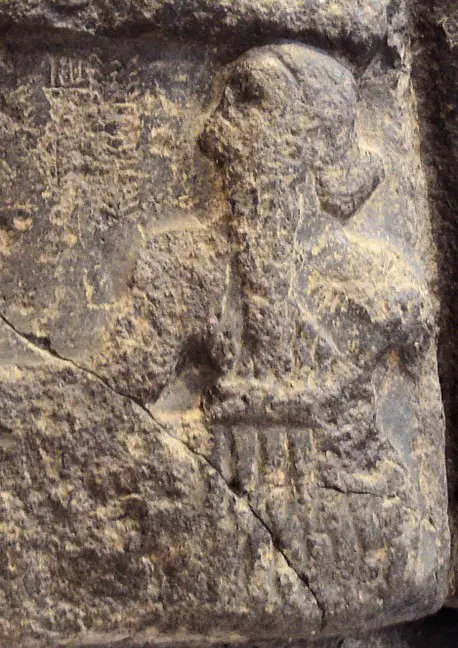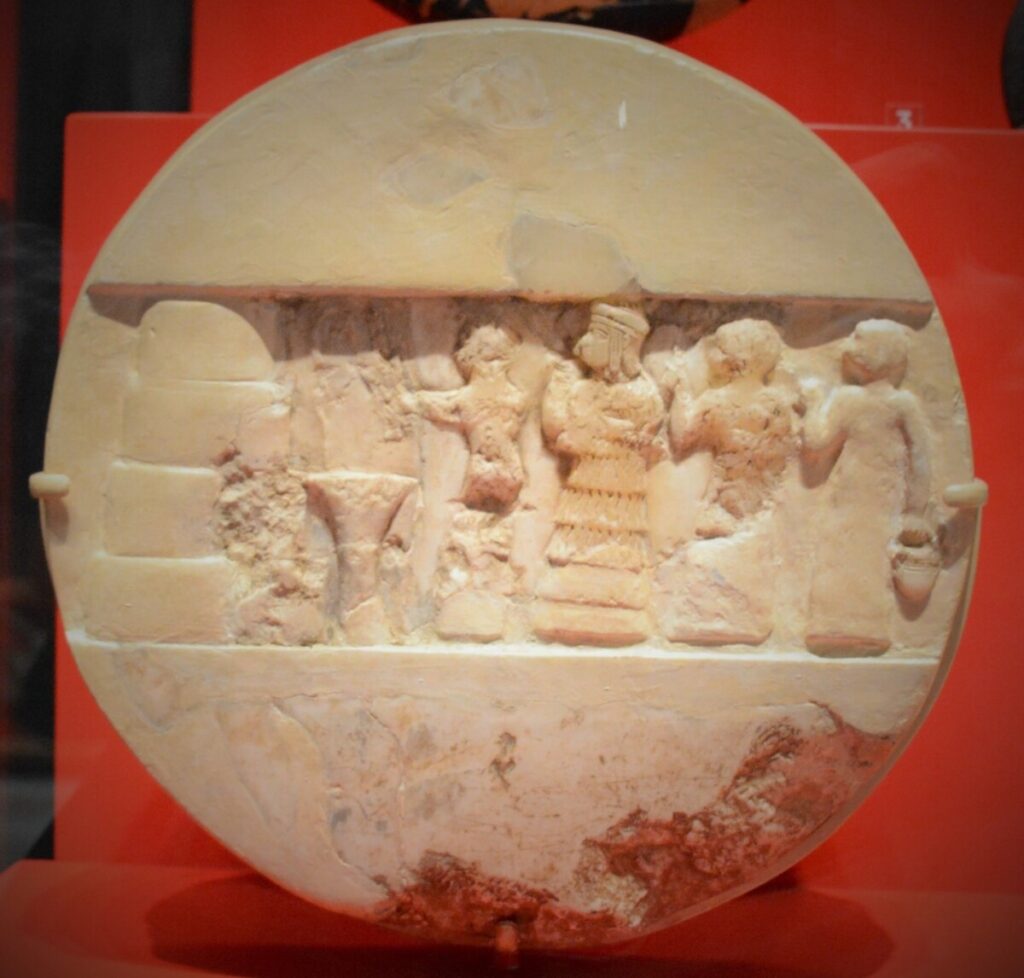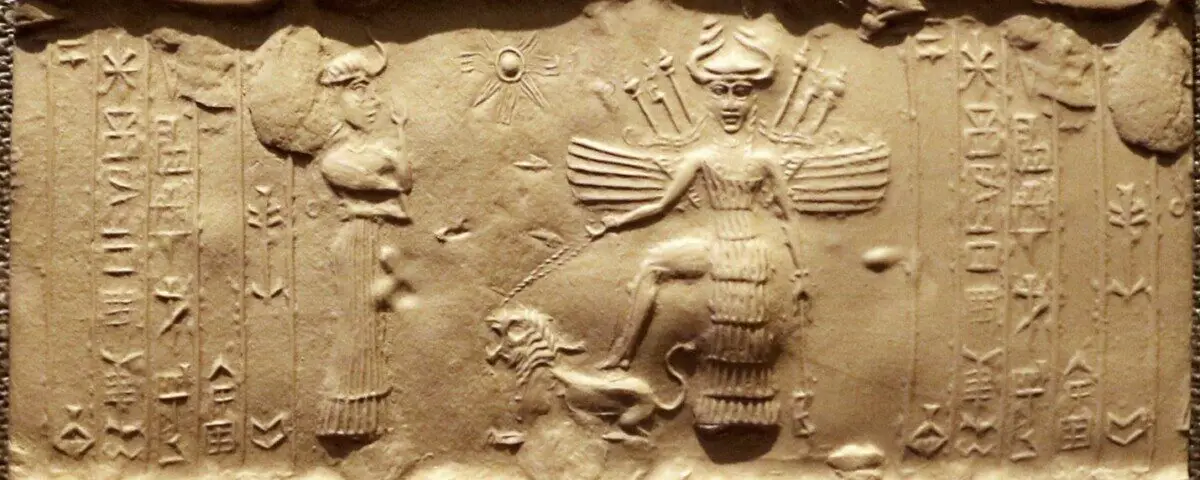If you were asked – Who is Enheduanna? – would you know? Few people, including me, an author, had no idea who the world’s first author was, where she came from, or even that she was a woman.
I thought the ancient female author and Greek poet Sappho, was as near the first author as could be. But she wasn’t born until 1000 years later and less of her work remains in existence than Enheduanna’s.
Enheduanna was an ancient Sumerian princess and high priestess of the god Nanna. She is considered to have been the first known author in history. She lived in what is now southern Iraq around 2400 BCE, and she was known for poetry and hymns, particularly those written in honour of the goddess Inanna.
Who is Enheduanna?
Enheduanna was the daughter of a powerful political figure, the emperor Sargon the Great. He founded what is considered to have been the world’s first empire, the Akkadian Empire in Sumer.

Iraq’s Marsh Arabs are believed to be linked to the ancient Sumerians. And Sumer is the earliest known civilisation in the historical region of southern Mesopotamia, which was first permanently settled between c. 5500 and 4000 BC.
Sargon the Great’s daughter, Enheduanna,wielded great power. She was high priestess for more than 40 years, and she even survived an attempted coup.
In ancient Sumerian, the name Enheduanna meant – Ornament of Heaven, a fitting name for a moon god’s high priestess. The god she served was called Nanna-Suen. In her role as priestess and princess, she is credited with having helped unite the Akkadian region. She did this by blending rituals and beliefs surrounding the Akkadian goddess Ishtar with those of the Sumerian goddess Inanna.
Effectively, she created a single religion for the region, which she accomplished through her poetry.
Enheduanna’s Hymns and Poetry

Enheduanna’s poetry and hymns are some of the oldest surviving works of literature in the world. They provide a unique window into the culture and beliefs of the ancient Sumerian civilisation.
Her works are notable for their beauty and elegance, and they demonstrate a deep understanding of language and literature. Her poetry and hymns were highly influential, and they had a lasting impact on literature and culture in the region.
Enheduanna’s Poems to Inanna
Enheduanna is known best for her three hymns to Inanna. They are:
- Inninsagurra (which translates to The Great-Hearted Mistress),
- Ninmessara (Exultation of Inanna), and
- Inninmehusa (Goddess of Fearsome Powers).
Inninsagurra
Inninsagurra only exists today in a partial form. We know the complete poem was made up of three sections.
- The first part, lines 1-90, focused on the goddess’ fierce, warlike abilities.
- The second and largest part, lines 91-218, addressed Innanna directly. It listed all of her many abilities and powers and declared her as superior to all other gods and goddesses.
- The third part is the section that is most fragmentary today. It is also the most difficult to parse, given it alludes to historical events that we cannot glean from what is left.
Ninmessara
Ninmessara is divided into two sections.
The first sequence runs from lines 1-65 and emphasises the goddess’ capacity for vengeance and violence.
Things get more personal in the second sequence, however. This is where Enheduanna addresses Inanna, writing in the first person. Enheduanna begs Inanna to help her get revenge against Lugal-ane, the king who attempted a coup against the Empire.
She also prays that both Inanna and Nanna stop punishing her and her people in the form of the coup.
Inninmehusa
Inninmehusa begins with a hymn to the goddess, and then transitions to narration spoken by Innana. The goddess details revenge she plans to take on Ebih’s mountain range for having the audacity to not bow before her.
As the narrative continues, she visits An, the sky god, for help, but he refuses. This sends her into a rage, leading her to launch an attack on Ebih alone, which she wins.
Enheduanna’s Writing Disseminated and Preserved
In addition to being the first known author, Enheduanna is significant for being one of the first women to have her works widely disseminated and preserved.
In the ancient world, it was unusual for women to be recognised as authors. So, Enheduanna’s achievement in this regard is all the more impressive given the societal constraints she faced as a woman in a patriarchal society.
Remembering a Pioneer of Literature
Today, Enheduanna is remembered as a pioneering figure in the history of literature, and her works continue to be studied and admired by scholars and readers around the world.
Despite the passage of time, and many types of literature, her poetry and hymns remain powerful and relevant, and they offer a glimpse into the rich and diverse cultural heritage of the ancient Near East.
Sources
Enheduanna – Joshua J. Mark – March 24, 2014
How Have We Forgotten the First Named Female Poet, Enheduanna? – Weslee Kate – March 31, 2020

